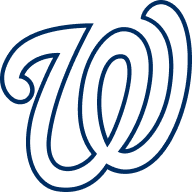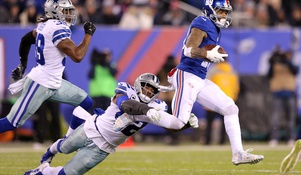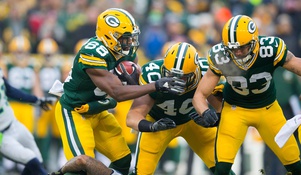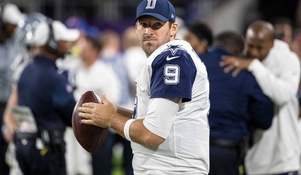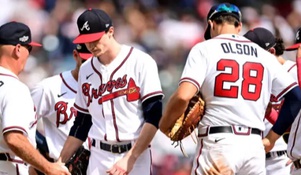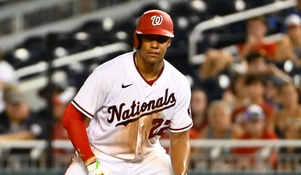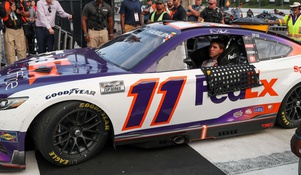Was trading for Adam Eaton a panic move for the Nationals?
As it is every year, the MLB Winter Meetings were a very eventful time for many teams. Big name players were signed and traded.
The Washington Nationals came into the Winter Meetings with uncertainty. They were rumored to be connected to many players such as Chris Sale, Andrew McCutchen, David Robertson, Billy Hamilton and more.
In the end, the Nationals were not left out of the bidding wars and traded with the Chicago White Sox to acquire outfielder Adam Eaton. Washington was reportedly very close to trading with the Pittsburgh Pirates for McCutchen, but in the end went with Eaton over McCutchen. Was this the right move for the Nationals?
There’s plenty of factors that go into comparing two potential trades. Teams need to obviously consider what it is trading away, injury history, contracts, recent performance, etc. Some have said that once trade talks for McCutchen broke down for the Nationals that trading for Eaton like they did was a panic move. However, looking into it deeper, that seems misguided.
Interestingly, it seems as if what the Nationals were willing to give up for McCutchen was very similar if not even slightly less than what they ended up giving the White Sox. The Nationals sent Lucas Giolito, Dane Dunning, and Reynaldo Lopez to the White Sox for Eaton. Joel Sherman of the New York Post tweeted the following on Dec. 7th:

Given how Sherman worded the tweet, it sounds like the Pirates asked for Giolito and Dunning and the Nationals backed out at the last second. If this is true, unless something else happened, the Nationals were willing to give up more for Eaton than McCutchen. Are the Nationals’ value assessments correct?
The difference between Eaton and McCutchen’s contracts is pretty significant. McCutchen is only under contract through 2018 and will make around $29M. Eaton, on the other hand, is under contract through 2021 and will make around $39M. Eaton may be a long term option for Washington is he plays well. Likely, the Nationals viewed McCutchen as a short term option with a higher upside than Eaton the next two years. The Nationals won’t exactly be short on money in two years so if McCutchen performed well, they could extend him, but the total cost would be significantly more than Eaton’s contract and McCutchen is two years older than Eaton. In theory, either option would make sense for Nationals. The case may be though that Eaton may not just be the better long term option, but also the better short term option as well.
Last season, McCutchen had by far the worst season of his career. He hit .256/.336/.430 with 24 home runs, 79 RBI and six stolen bases. Fangraphs gave McCutchen a 2.1 offensive rating, a -16.5 defensive rating, and a 0.7 WAR. Eaton had the best year of his career, hitting .284/.362/.428 with 14 home runs, 59 RBI, and 14 stolen bases. Fangraphs gave Eaton a 16.8 offensive rating, a 18.0 defensive rating, and a 6.0 WAR.
Eaton’s WAR has gone up the last three years from 3.1 to 3.7 to 6.0. The opposite is happening with McCutchen who had a WAR of 8.4 in 2013 and decreased to 6.8 in 2014, 5.8 in 2015, and 0.7 in 2016. That’s not very encouraging for the outlook of McCutchen, especially given that he is 30.
Offensively, McCutchen was fine last season, hitting 3 percent better than the league average. However, his defense was not good according to Fangraphs who gave him a -16.5 rating. Eaton was 19% better offensively than league average last year. Eaton was a very good hitter but also an extremely good defender which helped him achieve a 6.0 WAR.
So last season Eaton was better all around than McCutchen, but if McCutchen can return to similar offensive numbers as he had when he won the National League MVP, he would almost certainly be more valuable than Eaton. The question is, will McCutchen ever return to the numbers he had in 2013?
McCutchen battled with left knee pain for most of the season which is what he attributed to his lack of production last season. He did miss some games and the excuse makes sense. If he can get back to full health it’s likely he will play better than he did last season.
That still doesn’t give a reason for his decrease in production for four straight years. McCutchen has not missed much time in his career, playing 153 games or more all but two years of his career. However, if these nagging injuries are going to be reoccurring, that could be real trouble for his longevity and production.
So those saying that this was a panic move on the Nationals part are wrong. In fact, it’s very possible that this was the better move. Eaton has a longer, more team-friendly contract. He was better last season and is on the up-and-up while McCutchen is on a downwards trend.
Given the very similar trade package between the Eaton deal and the potential McCutchen deal, what the Nationals did makes sense. If the Nationals were able to get McCutchen for less, like a deal without Dunning, McCutchen would have made more sense, but the Pirates were never going to agree to such a deal. As a result, the Nationals made the right move trading for Eaton instead of McCutchen.

